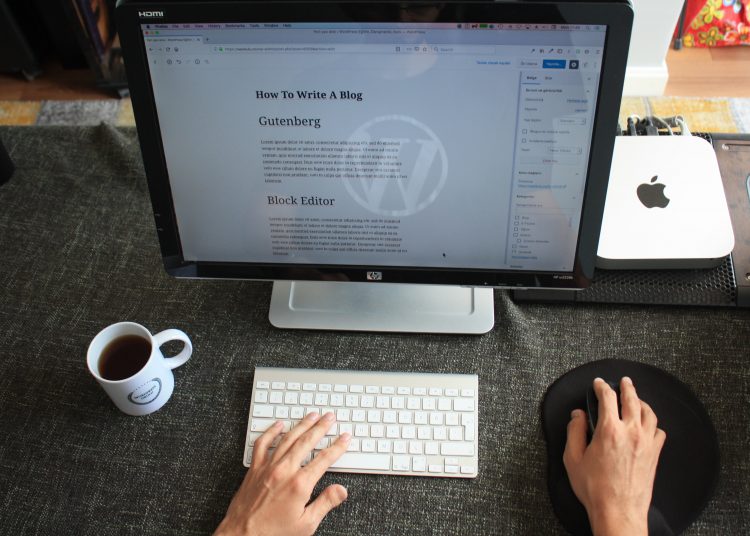So you want to start a blog, but are not sure where to start? I’m here to help. Trust me, blogging is easier than it seems and I’m absolutely sure you’ll love this journey.
Whether your goal is to make money online, share your knowledge or just publish your poetry, as long as there’s an audience that wants to listen to you, you’ll do just fine with blogging.
But why blog in the first place?
Advantages of blogging:
- You can get your opinions heard, gain new followers and meet new people.
- It can help you earn a passive income if you can monetize it.
- If you’re a business, you can write blogs and show your authority over the subject and gain people’s trust.
- It can be a great hobby.
In this article, I will tell you the basics of how to start a blog in 2021.
Target audience: Beginners
Find a Niche
Perhaps the most important part of starting a blog is the question – What do you want to blog about?
If you have an answer, kudos to you!
I often tend to struggle with finding an idea. And I’m sure it’s not just me.
Here’s what I do.
When running out of ideas, I try to answer two questions:
What are my interests?
The best niche for you as a beginner is the subject that you are interested in.
If you’re not passionate about the subject, there’s a good chance that you’ll lose interest writing about it after a while.
This is probably one of the biggest reasons why most new blogs fail within a few months of starting.
You don’t want that to happen to your blog, do you?
What would my audience be interested in?
So you have figured out a subject you can keep talking about. Well done!
But what if there’s nobody to listen to you? Scary, right?
You need to pick a topic that is guaranteed to appeal to the masses.
Not sure how to find out if people are interested in your chosen subject? Here are a few things you can check:
- Are people are talking about it in groups and pages on social media.
- Are people asking about it on Q&A sites such as Quora and Reddit.
- Are people searching about it on Google.
Another effective method is as simple as asking your friends and acquaintances what they think about the topic of your upcoming blog.
Note down all the feedback that you get and further polish your idea.
Choose a Domain Name
The domain name is the web address that people use to find your blog. It’s one of the most important parts of your blog, and you should choose it carefully.
You have two options – either go for a keyword-rich domain or a brandable domain.
If you’re reviewing the best headphones on Amazon, you can go for a domain that exactly tells the visitors as well as search engines what your website is about. It can consist of one of two exact words that people search for in Google to read about the best headphones.
For example, headphonereviews.com is a keyword-rich domain.
On the other hand, bing.com is a brandable domain. It may mean nothing literally, but it sounds good and is easy to spell and remember.
Your perfect domain name should be:
- Short
- Catchy
- Easy to spell
- Memorable
- Preferably .com
For the domain registrar (where you can purchase domain names), I would highly recommend Namesilo or Namecheap.
They are two of the biggest names in the domain registrar space and offer a variety of domain extensions at throwaway prices along with a few free perks such as WHOIS privacy. For those who are not aware, WHOIS privacy is a feature that hides your personal details, such as your email address in the public WHOIS database.
A quick tip: Always go for a .com domain. If it’s not available but you absolutely love the name, your next target should be a .net or .org. Avoid numbers and hyphens in the domain name and keep it as short as possible.
Get a Web Hosting
Your blog (or any website for that matter) is essentially a bunch of files that sit on a server somewhere in the world. When a visitor tries to access a webpage on your blog, a few of those files are conditionally served to them by the server.
Choosing the right web hosting (server) for your blog is crucial because it can make or break it. You have to pick a web host that offers great features at a reasonable price, so that you can have a highly optimized website and the best tools to manage it.
A few low cost web hosting companies that I would recommend are Bluehost and Siteground. They are officially recommended by WordPress as well if you want a seal of trust.
If you can push your budget a bit higher, I would highly recommend going for Cloudways. They offer high quality hosting from the best cloud hosting companies such as DigitalOcean, AWS and Google Cloud. However, managing a WordPress website on Cloudways can be a little overwhelming for a beginner.
Choose a Platform
This is probably one of the biggest factors that can decide what your blogging journey will look like a year down the line.
But surprisingly, the choice is pretty simple – WordPress.
WordPress is the most popular content management system in the world. In fact, it powers over 42% of all websites (source) at the time of writing this article.
Those are mind-boggling figures.
WordPress was originally built to be a blogging platform. However, it has evolved over time and can now be used to build almost any type of website you can imagine.
The best part is that it is open-source and free to download and use. On top of that, there are a massive number of themes and plugins (both free and paid) that you can install to customize your website the way you want.
Note that you want to go for WordPress.org and not WordPress.com. Read more about the difference here.
A quick tip: If you want to build a blog on a lightweight platform and don’t need too many extra features, you can consider Ghost.
Choose a Theme
A good user interface is very important for building a good first impression.
There are a ton of WordPress themes available – both free and paid. Some have better, more visually appealing designs while others offer more features for the same price.
So, what is the best WordPress theme for you?
The answer depends on your needs. There is no one-size-fits-all theme that is the best for everyone. You have to find a theme that works best for your particular niche.
For example, a theme that was originally designed for personal blogs will not suit a news portal, and vice-versa.
However, simple yet customizable themes are getting a lot of traction these days. I prefer such themes for my own websites.
Here are a few that I can vouch for:
- GeneratePress – Lightweight, super-fast and clean code
- Astra – Very fast and great customizability
- Kadence – Very fast and even more features
Talking about themes, it’s worth mentioning that you need a nice logo done for your website. If you are good at graphics designing skills, do it yourself. Else, you can always hire a freelancer to do the job for you.
A quick tip: Keep it simple. Clumsy websites with bright colours and funky fonts are a thing of the past.
Write
Nobody likes an empty website. Period.
If you plan to start a blog, you must tell this to yourself – I better start writing a lot.
Like I said before, many blogs fail because the owner lost interest. Don’t let that happen to you.
Make it a point to publish as often as you can. But while doing so, don’t lose your grip over the quality of your content – 5 high quality articles are better than 50 poor ones.
You need to stay on topic and make sure the articles that you publish are closely related.
For example, if you want to blog on gardening, you can post articles such as “The best natural fertilizers” and “The best gardening shovels”. They are both relevant to your niche.
But, if one fine day you post a piece on “The best ways to gain weight without supplements”, it’ll look awkward.
Read
Just like you’re reading this article to get some understanding on the basics of blogging, go around and read what others are saying.
Yes, read a lot.
Many successful bloggers – both general and niche specific – share their knowledge and experience with their audience. While a lot of that can be repetitive, you’ll definitely learn something new.
I hope by now you have got a high-level idea of how to start a blog. Trust me, we have just been scratching the surface till now. Blogging is a long journey that can take a long time before it starts showing results.
Patience is the key here – it’s difficult to keep but it’s absolutely worth it.
If you have any questions, I’ll be glad to answer them. Shoot them in the comments section below.
Thanks for reading.
For more great articles, check out the rest of the site.







